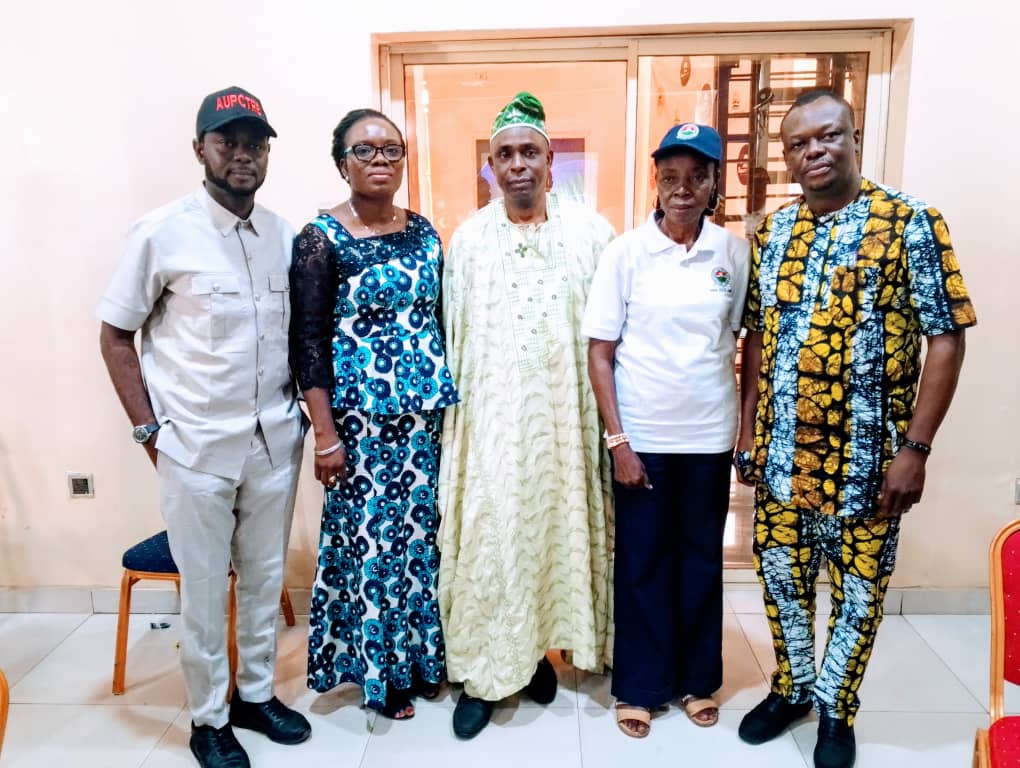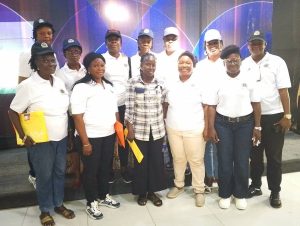AUPCTRE, RDI Canvass More Women Participation In Trade Unionism, Politics, Others
...As NUTGTWN Scribe Seeks Healthy Balance Between Work And Family Values

By Edu Abade
For Nigeria to achieve socio-economic equilibrium, political stability and prosperity for all citizens, women must be empowered and allowed to participate more actively in trade union activities and efforts to deepen the country’s democratic process.
This was the submission of members of the Amalgamated Union of Public Corporations Civil Service Technical and Recreational Services Employees and a civil society group, the Renevlyn Development Initiative (RDI), who spoke, yesterday, at the Women Committee retreat and workshop of the Lagos State Council of AUPCTRE in Lekki with the theme: Empowering Women for Exploits.
 In her opening address, Chairperson of the State Women Committee of AUPCTRE, Comrade Ngozi Edet, said the retreat was organized to equip women with the requisite skills and knowledge to effectively and positively navigate through the current harsh economic situation in the country and beyond.
In her opening address, Chairperson of the State Women Committee of AUPCTRE, Comrade Ngozi Edet, said the retreat was organized to equip women with the requisite skills and knowledge to effectively and positively navigate through the current harsh economic situation in the country and beyond.
Edet, who urged the participants to be totally involved with all the sessions as they were loaded with huge mental benefits, stressed that women’s active participation in unionism had contributed immensely to the growth of trade unions globally and as such there was the urgent need for real consciousness by women.
“I urge all women to always be at the forefront of the fight for justice, equity and fairness as this will not only build a just society of our dreams, but it will also ensure a better future for our children and generations to come,” she added.
In his presentation titled: Advocating for Women Emancipation, Executive Director of RDI, Mr. Philip Jakpor, explained that in theory, emancipation means the act of freeing a person from another person’s control and is usually associated with liberation, release, freedom and independence.
His words: “It is the process of freeing or releasing women from societal or traditional constraints and empowering them with rights, freedoms, and opportunities for social, political, and economic progress. From our perspective it targets ensuring freedom for self-fulfillment and development.
“But over time, women have been constrained by societal norms, occupational segregation and workplace oppression, unpaid care responsibilities, lack of access to land, capital and financial resources, justice and technology, as well as gender-based violence due to cultural mind-sets and stereotypes and corporate powers.”
Citing the Aba women’s resistance (not riot as it is commonly called) of 1929, he said it was the first revolt by women in West Africa, adding: “Thousands of women from Umuahia, present day Abia State travelled to Oloko Town to protest against Warrant Chiefs accused of restricting the role of women in government. The women were from six ethnic groups (Igbo, Ibibio, Andoni, Ogoni, Efik, and Ijaw). They used sit-in tactics.”
He pointed out that the Aba Women resistance led to the forced resignation of many Warrant Chiefs, sacking of over 16 native courts sacked, abolishing of warrant chief by the colonial government in 1930 and appointment of women into the Native Court system
Jakpor stressed that women can achieve emancipation largely through mass education, mobilization, advocacy, interactions, trainings and capacity building, exposures, self motivation and sharing of experiences
He maintained that an emancipated women folks translates into empowered, confident, happier, healthier, productive and united women, which ultimately translates into a better society, adding that the likes of Ngozi Okonjo-Iweala, the late Prof. Dora Akunyili, Obiageli Ezekwesili, and Chimamanda Adichie, among others are examples of emancipated women blazing the trail in their various fields of endeavour, without exhibiting western style of emancipation, which places more emphasis on separation and domineering attitude over their men folk.
Also, in her presentation titled: The Role of Women in Trade Unions, Assistant General Secretary and Gender Officer, National Union of Textile, Garment and Tailoring Workers of Nigeria (NUTGTWN), Comrade Medinat Balogun, stressed the need for women to strike a healthy balance between their work and family values.
She noted that the trade union movement has contributed to the political and economic development of the Nigerian economy, maintaining that women strive to participate equally in trade unions by not looking for privileges, but by ensuring that the issue of one’s sex becomes irrelevant in whatever they intend to do.
Her words: “We can say that women have proven themselves fit and able to compete favourably with their male counterparts by combining their traditional role of taking care of the home front with economic demands.
“Women could perform better if encouraged to participate and their participation can be raised by educating them to become increasingly aware of their rights and obligations as workers.
“Men should not monopolize union positions as women are also part and parcel of the trade union movement and should be carried along the same level playing ground as their male counterparts.”
Balogun, however, stressed the need for succession mentorship, lamenting that retired women leaders failed to groom future leaders to effectively take over from them in trade union activities, adding that as soon as they leave office, such past female unionists go into oblivion.
She further explained that gender equality should be promoted to achieve goal 5 of the United Nations SDGs, which focuses on gender equality and empowerment of all women and girls.
“Gender equality is not only a fundamental human right, but a necessary foundation for a peaceful, prosperous and sustainable world. It is essential for advancing development and reducing poverty, as women are entitled to live with dignity and freedom from want and fear.
“Empowered women contribute to the health and productivity of whole families and communities and they improve prospects for the next generation. Women empowerment is a critical aspect of achieving gender equality. It includes increasing a woman’s sense of self-worth, her decision-making power, access to opportunities and resources, power and control over her own life in and out of the home and her ability to effect change in the larger society,” she stated.











